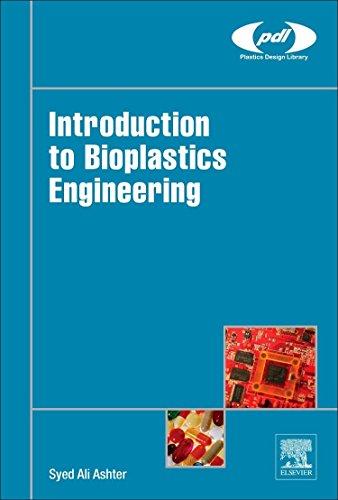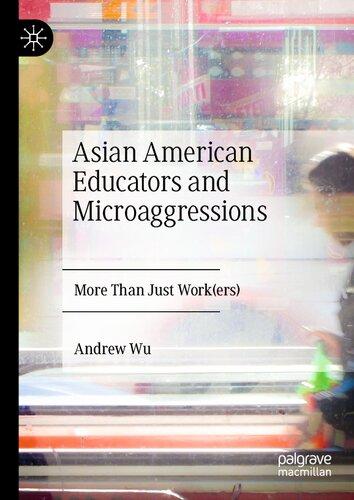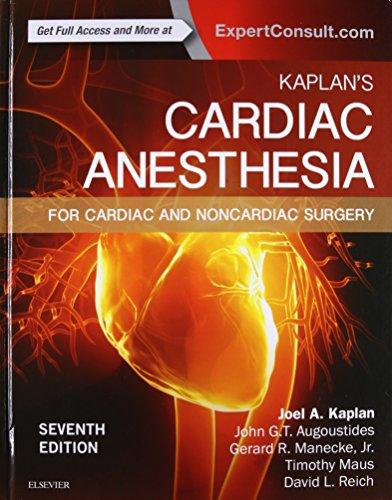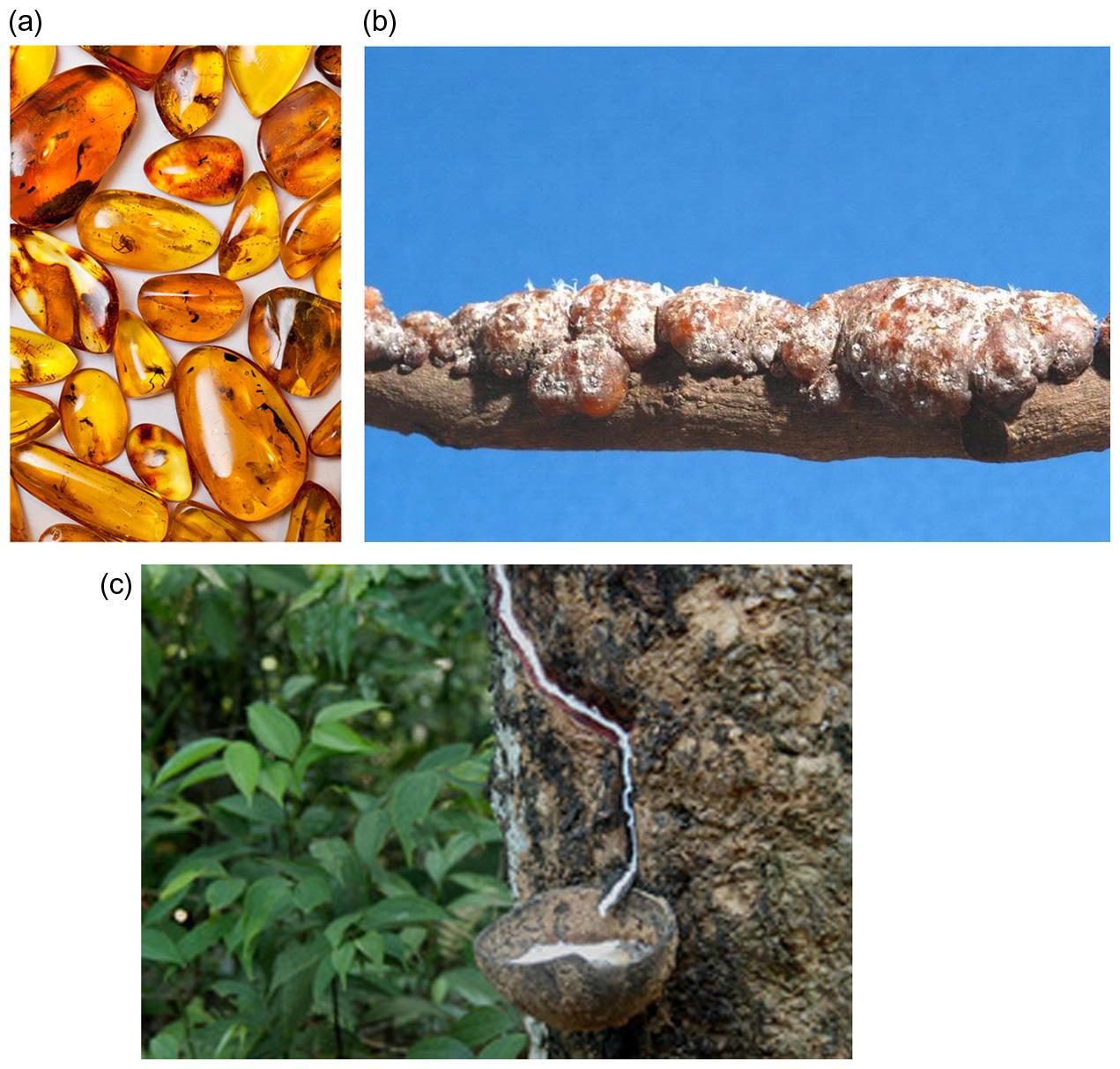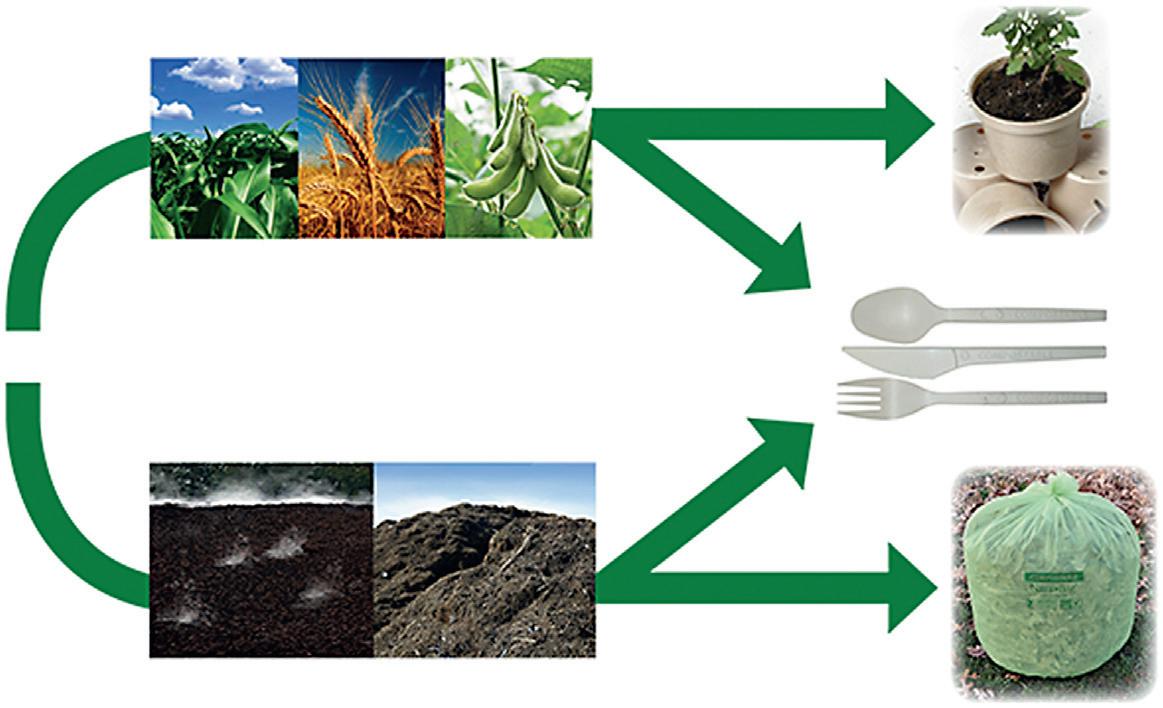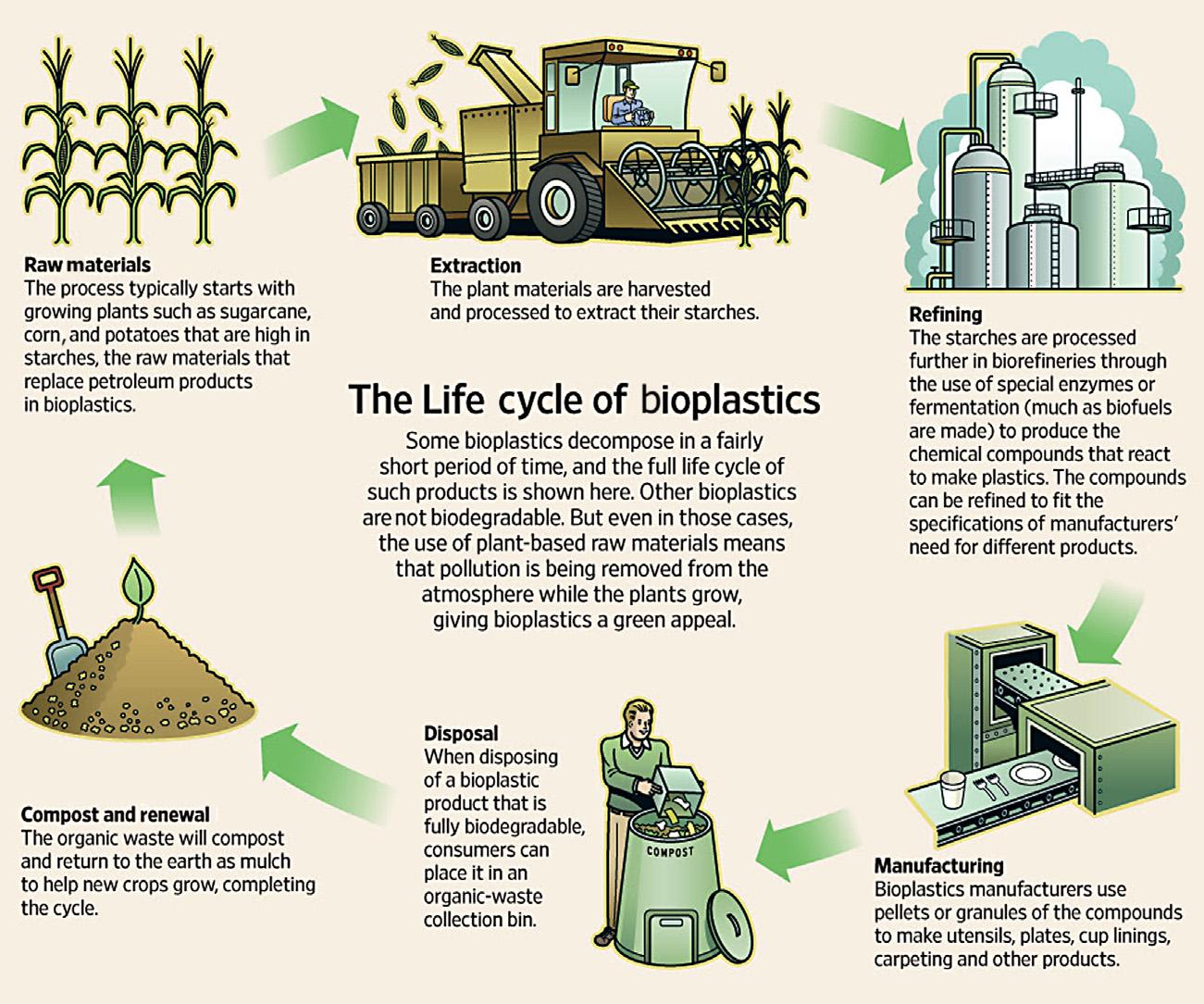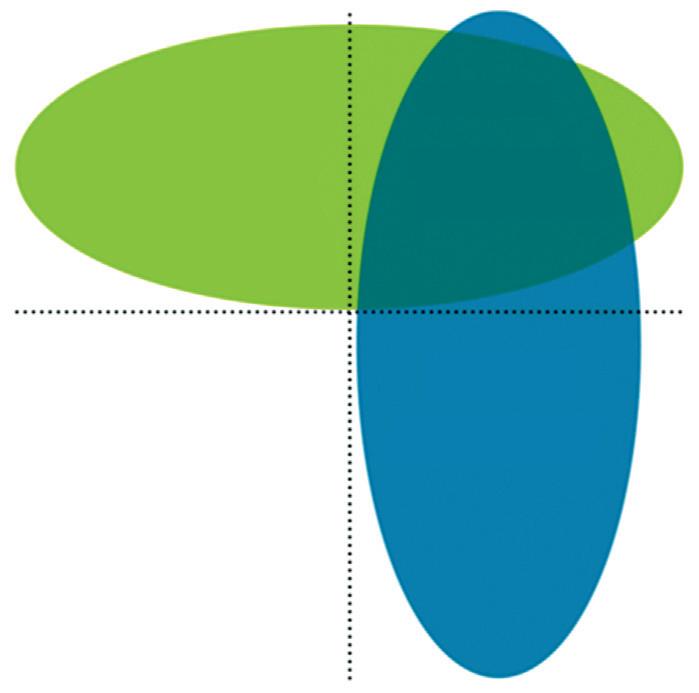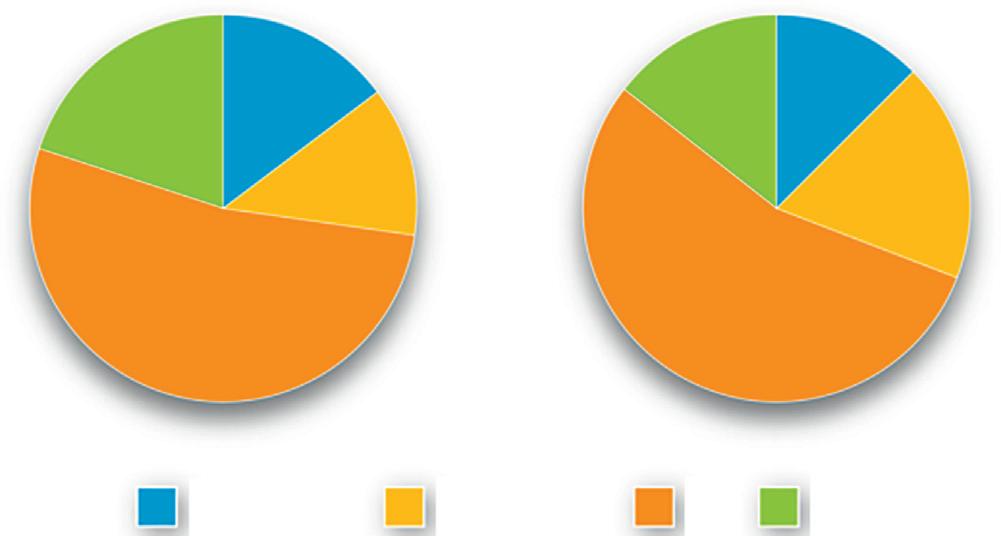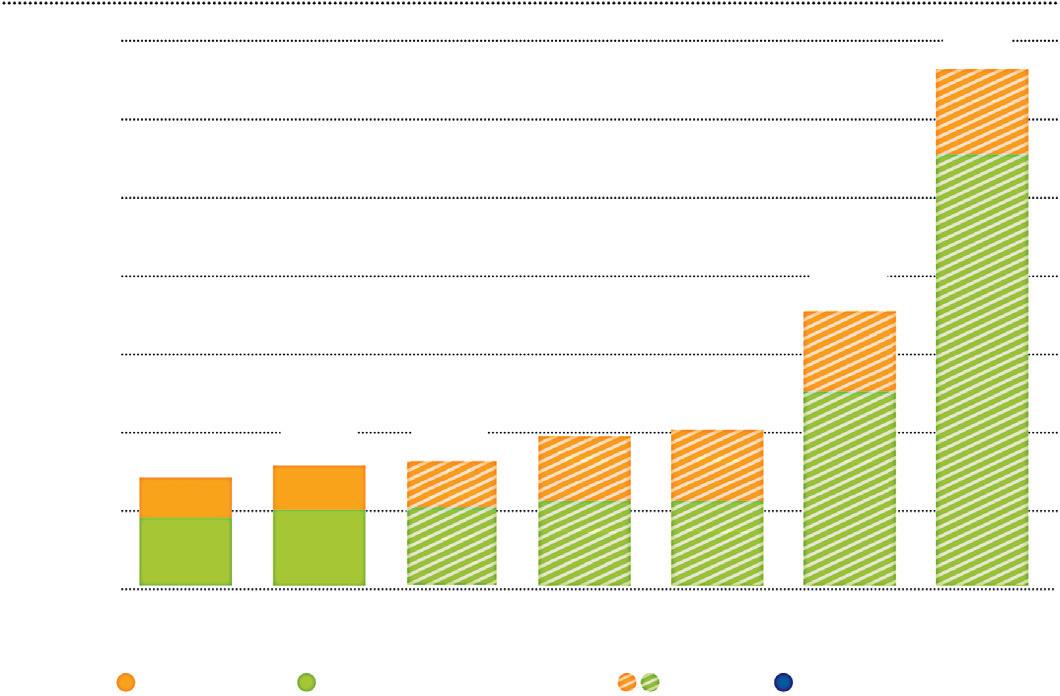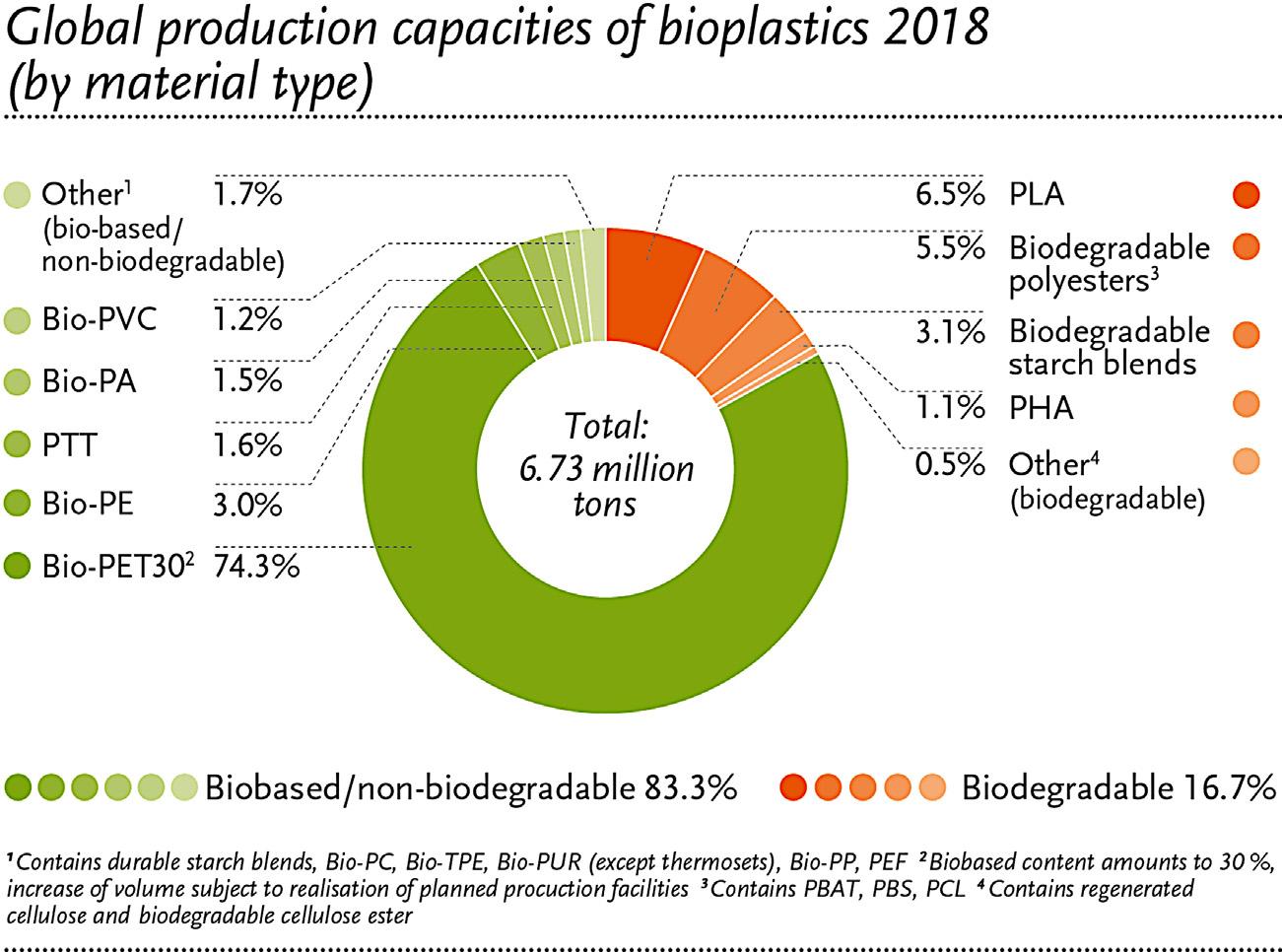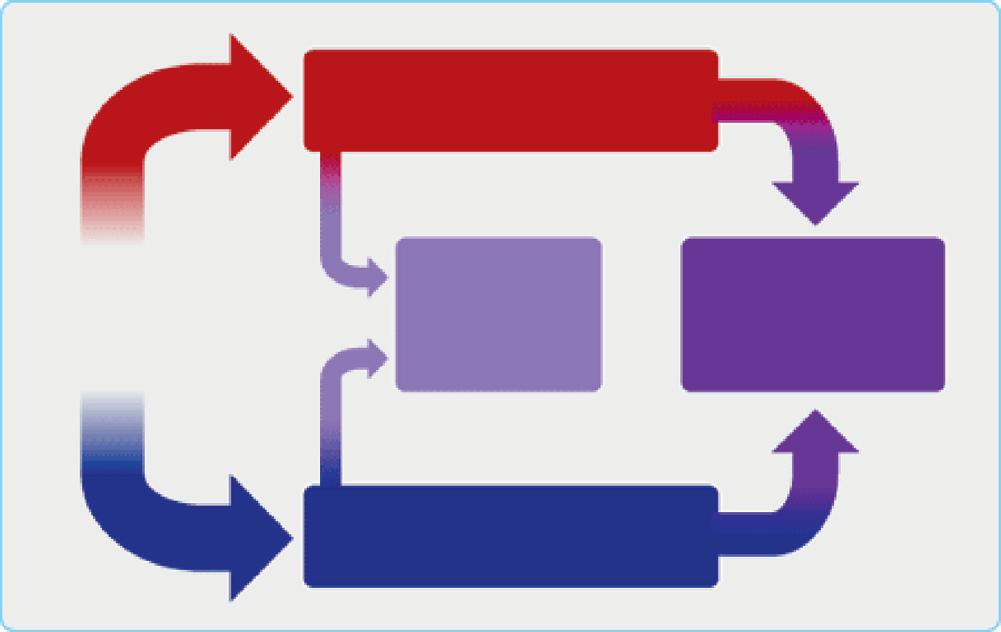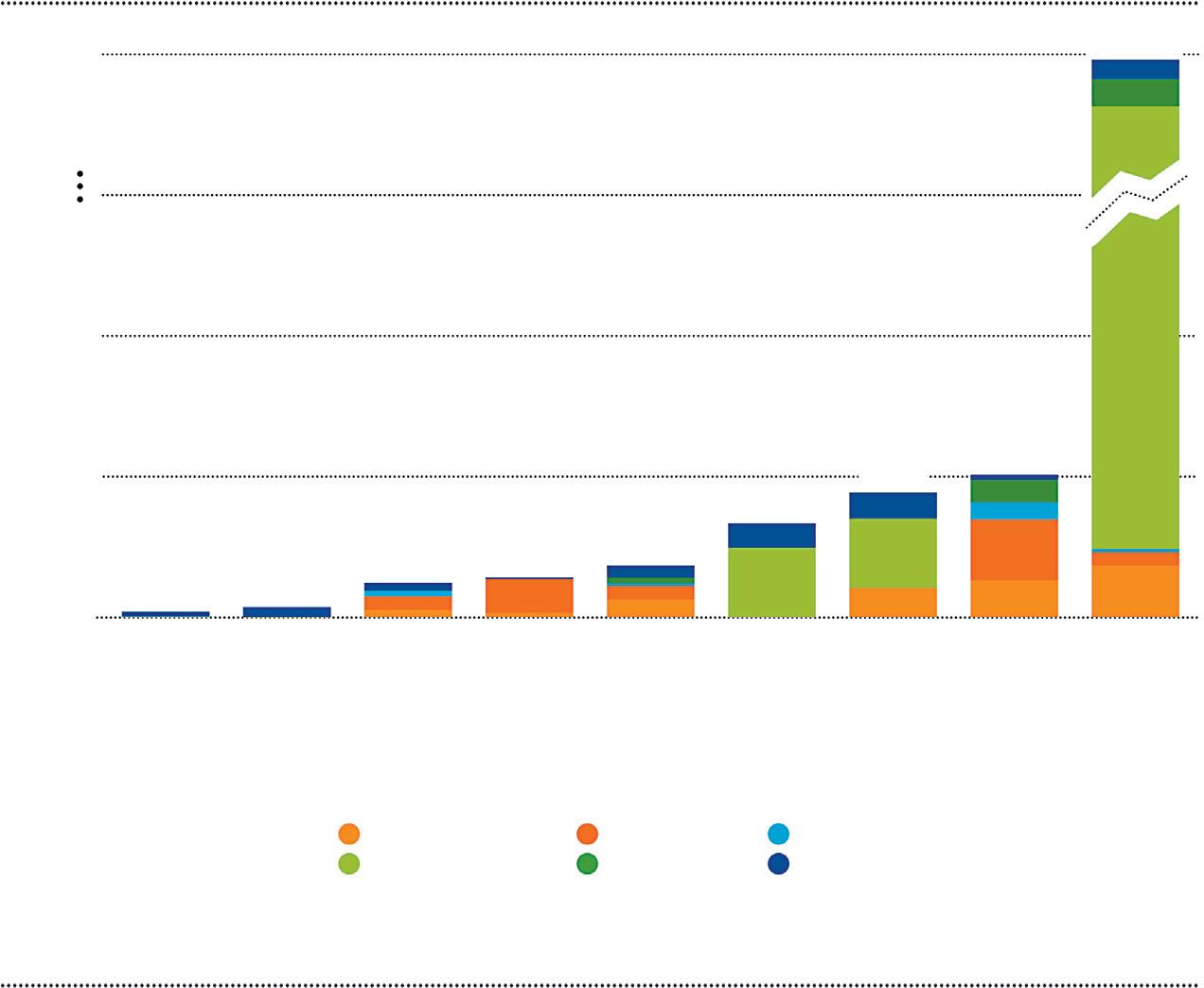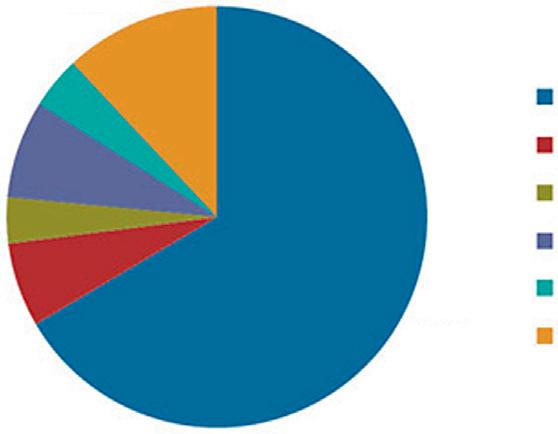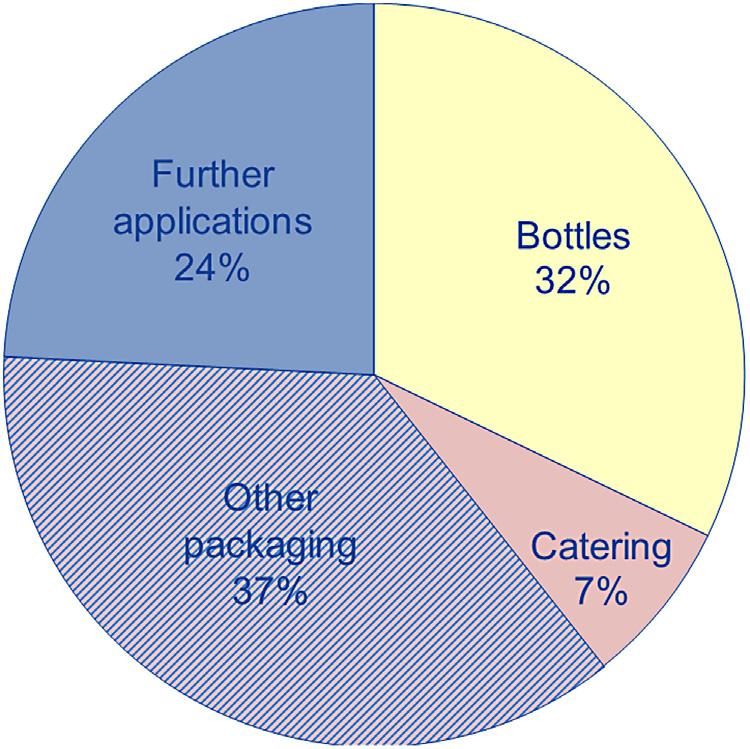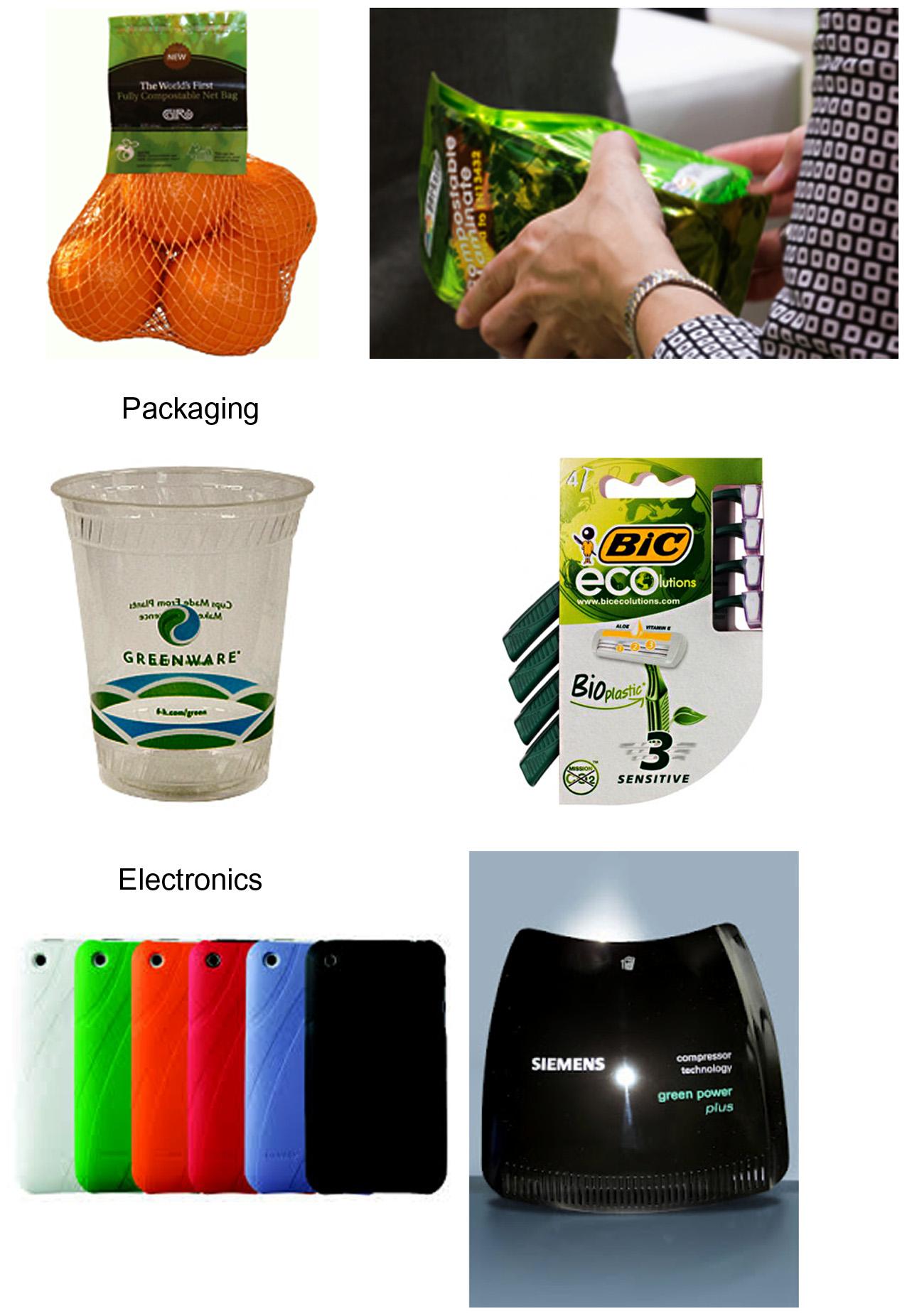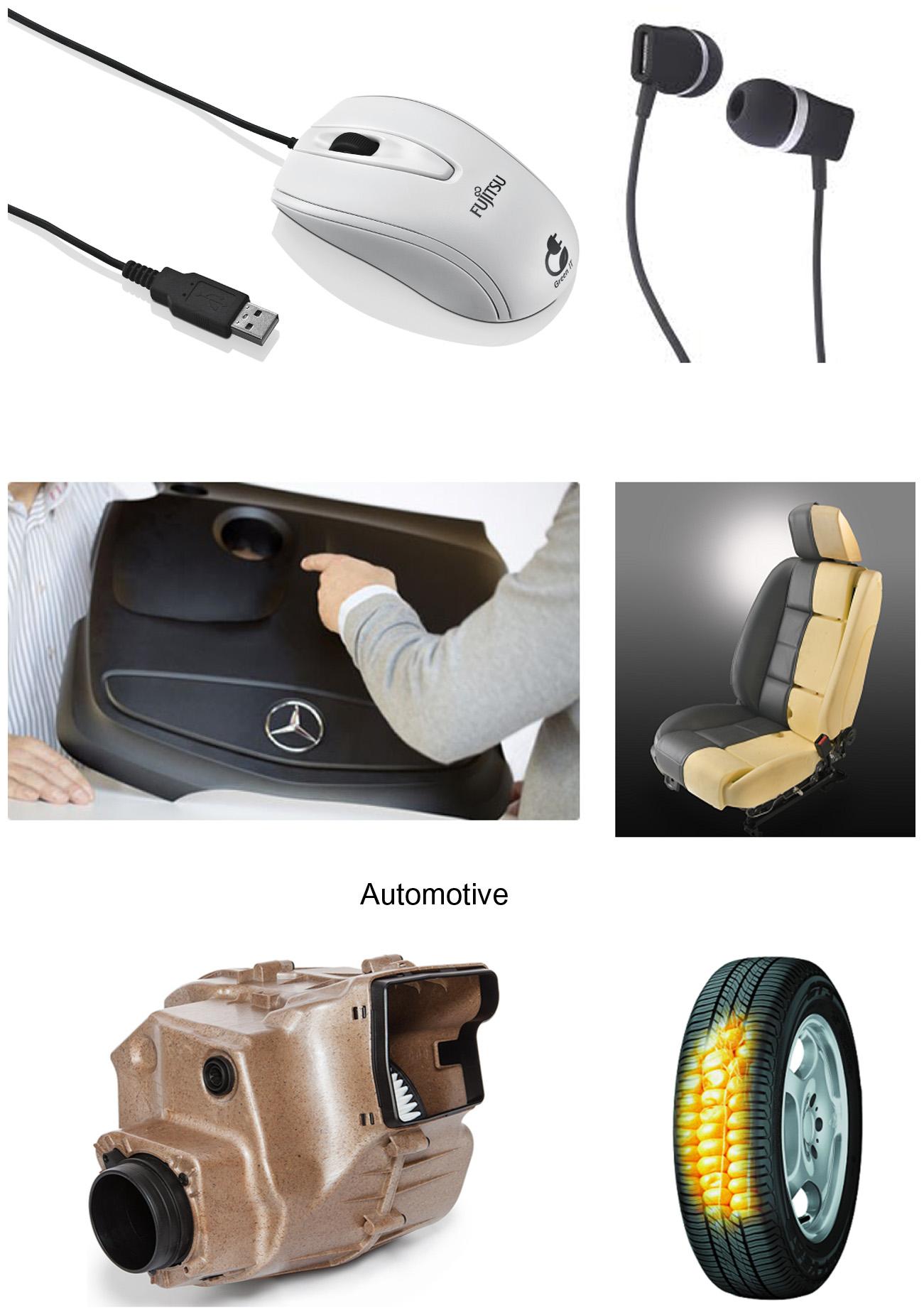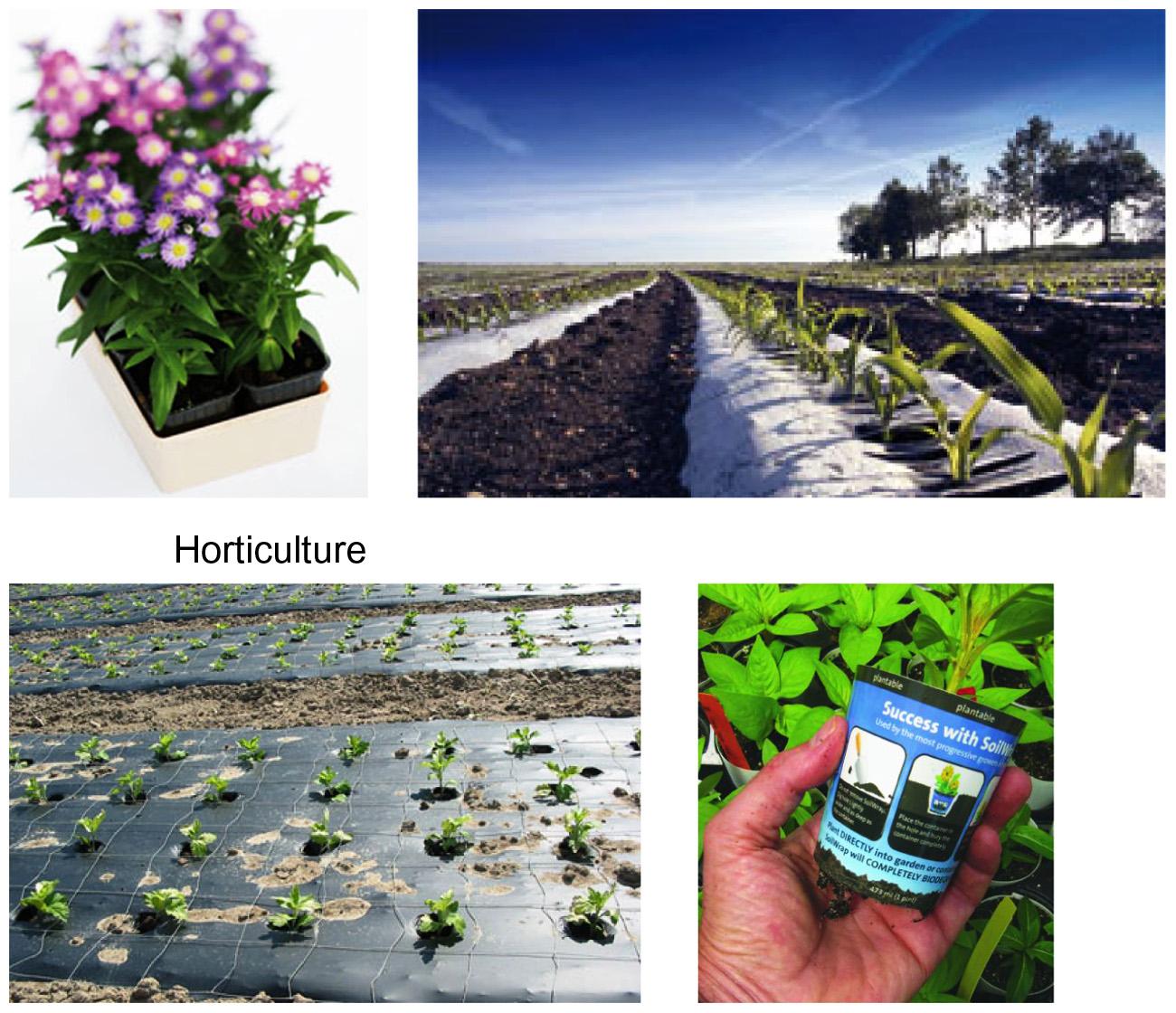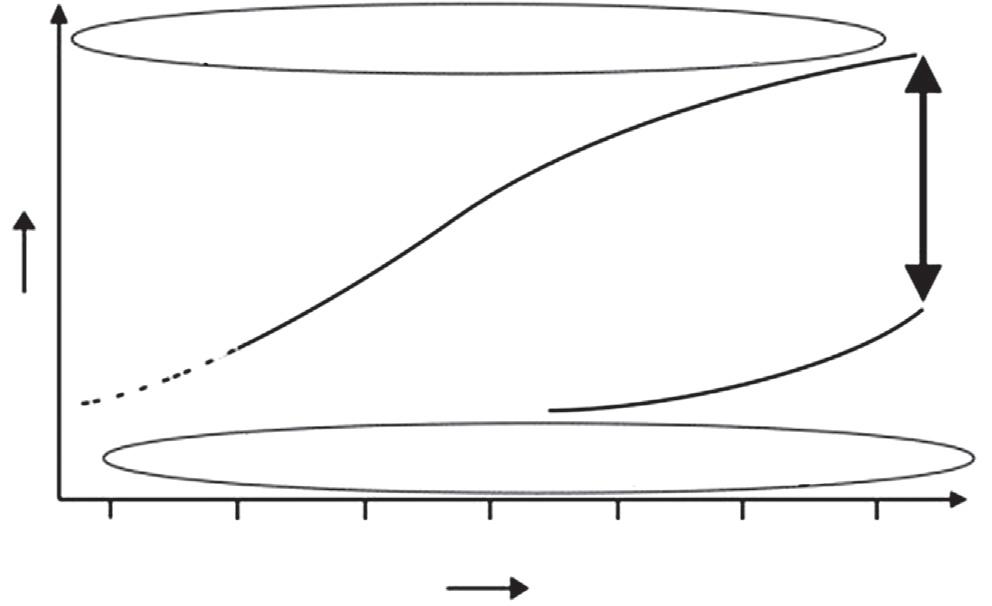https://ebookmass.com/product/introduction-to-bioplasticsengineering-1st-edition-ashter/
Instant digital products (PDF, ePub, MOBI) ready for you
Download now and discover formats that fit your needs...
Introduction to Engineering Fluid Mechanics 1st Edition Marcel Escudier
https://ebookmass.com/product/introduction-to-engineering-fluidmechanics-1st-edition-marcel-escudier/
ebookmass.com
Engineering Fundamentals: An Introduction to Engineering, SI Edition Saeed Moaveni
https://ebookmass.com/product/engineering-fundamentals-anintroduction-to-engineering-si-edition-saeed-moaveni/
ebookmass.com
Engineering Fundamentals: An Introduction to Engineering, 6th Edition Moaveni Saeed
https://ebookmass.com/product/engineering-fundamentals-anintroduction-to-engineering-6th-edition-moaveni-saeed/
ebookmass.com
Introduction to Modern Dynamics: Chaos, Networks, Space, and Time 2nd Edition David D. Nolte
https://ebookmass.com/product/introduction-to-modern-dynamics-chaosnetworks-space-and-time-2nd-edition-david-d-nolte-2/
ebookmass.com
The Chess Endgame
Exercise Book - John Nunn John Nunn
https://ebookmass.com/product/the-chess-endgame-exercise-book-johnnunn-john-nunn/
ebookmass.com
Locke: The Dragon Knight: Dragon's Blood M.C. Book 13 B.A. Stretke
https://ebookmass.com/product/locke-the-dragon-knight-dragons-blood-mc-book-13-b-a-stretke/
ebookmass.com
Neue Horizonte (World Languages) 8th Edition, (Ebook PDF)
https://ebookmass.com/product/neue-horizonte-world-languages-8thedition-ebook-pdf/
ebookmass.com
Asian American Educators and Microaggressions: More Than Just Work(ers) Andrew Wu
https://ebookmass.com/product/asian-american-educators-andmicroaggressions-more-than-just-workers-andrew-wu/
ebookmass.com
The Wiley Encyclopediaof Health Psychology Lee M. Cohen
https://ebookmass.com/product/the-wiley-encyclopediaof-healthpsychology-lee-m-cohen/
ebookmass.com
https://ebookmass.com/product/kaplans-cardiac-anesthesia-in-cardiacand-noncardiac-surgery-7e-7th-edition-joel-a-kaplan-md/
ebookmass.com
IntroductiontoBioplastics Engineering
PLASTICSDESIGNLIBRARY(PDL)
PDLHANDBOOKSERIES
SeriesEditor:SinaEbnesajjad,PhD(sina@FluoroConsultants.com) President,FluoroConsultantsGroup,LLC ChaddsFord,PA,USA www.FluoroConsultants.com
The PDLHandbookSeries isaimedatawiderangeofengineersandotherprofessionalsworking intheplasticsindustry,andrelatedsectorsusingplasticsandadhesives.
PDLisaseriesofdatabooks,referenceworksandpracticalguidescoveringplasticsengineering, applications,processing,andmanufacturing,andappliedaspectsofpolymerscience,elastomers, andadhesives.
RecentTitlesintheSeries
Biopolymers:ProcessingandProducts,MichaelNiaounakis(ISBN:9780323266987)
Biopolymers:Reuse,Recycling,andDisposal,MichaelNiaounakis(ISBN:9781455731459) CarbonNanotubeReinforcedComposites,MarcioLoos(ISBN:9781455731954) Extrusion,2e,JohnWagner&EldridgeMount(ISBN:9781437734812)
Fluoroplastics,Volume1,2e,SinaEbnesajjad(ISBN:9781455731992)
HandbookofBiopolymersandBiodegradablePlastics,SinaEbnesajjad(ISBN:9781455728343) HandbookofMoldedPartShrinkageandWarpage,JerryFischer(ISBN:9781455725977)
HandbookofPolymerApplicationsinMedicineandMedicalDevices,KayvonModjarrad&Sina Ebnesajjad(ISBN:9780323228053)
HandbookofThermoplasticElastomers,JiriGDrobny(ISBN:9780323221368)
HandbookofThermosetPlastics,2e,HannaDodiuk&SidneyGoodman(ISBN:9781455731077)
HighPerformancePolymers,2e,JohannesKarlFink(ISBN:9780323312226)
IntroductiontoFluoropolymers,SinaEbnesajjad(ISBN:9781455774425)
IonizingRadiationandPolymers,JiriGDrobny(ISBN:9781455778812)
ManufacturingFlexiblePackaging,ThomasDunn(ISBN:9780323264365)
PlasticFilmsinFoodPackaging,SinaEbnesajjad(ISBN:9781455731121)
PlasticsinMedicalDevices,2e,VinnySastri(ISBN:9781455732012)
PolylacticAcid,Rahmatet.al.(ISBN:9781437744590)
PolyvinylFluoride,SinaEbnesajjad(ISBN:9781455778850)
ReactivePolymers,2e,JohannesKarlFink(ISBN:9781455731497)
TheEffectofCreepandOtherTimeRelatedFactorsonPlasticsandElastomers,3e,Laurence McKeen(ISBN:9780323353137)
TheEffectofLongTermThermalExposureonPlasticsandElastomers,LaurenceMcKeen(ISBN: 9780323221085)
TheEffectofSterilizationonPlasticsandElastomers,3e,LaurenceMcKeen(ISBN: 9781455725984)
TheEffectofTemperatureandOtherFactorsonPlasticsandElastomers,3e,LaurenceMcKeen (ISBN:9780323310161)
TheEffectofUVLightandWeatheronPlasticsandElastomers,3e,LaurenceMcKeen(ISBN: 9781455728510)
ThermoformingofSingleandMultilayerLaminates,AliAshter(ISBN:9781455731725)
ThermoplasticsandThermoplasticComposites,2e,MichelBiron(ISBN:9781455778980)
ThermosetsandComposites,2e,MichelBiron(ISBN:9781455731244)
Tosubmitanewbookproposalfortheseries,orplaceanorder,pleasecontactDavidJackson, AcquisitionsEditor david.jackson@elsevier.com
IntroductiontoBioplastics Engineering
SyedAliAshter
R&DEndovascular
MaquetGetingeGroup
Merrimack,NH,USA
WilliamAndrewisanimprintofElsevier
WilliamAndrewisanimprintofElsevier
TheBoulevard,LangfordLane,Kidlington,Oxford,OX51GB,UK 50HampshireStreet,5thFloor,Cambridge,MA02139,USA
Copyright r 2016ElsevierInc.Allrightsreserved.
Nopartofthispublicationmaybereproducedortransmittedinanyformorbyanymeans,electronicor mechanical,includingphotocopying,recording,oranyinformationstorageandretrievalsystem,without permissioninwritingfromthepublisher.Detailsonhowtoseekpermission,furtherinformationaboutthe Publisher’spermissionspoliciesandourarrangementswithorganizationssuchastheCopyrightClearance CenterandtheCopyrightLicensingAgency,canbefoundatourwebsite: www.elsevier.com/permissions
ThisbookandtheindividualcontributionscontainedinitareprotectedundercopyrightbythePublisher (otherthanasmaybenotedherein).
Notices
Knowledgeandbestpracticeinthisfieldareconstantlychanging.Asnewresearchandexperiencebroadenour understanding,changesinresearchmethods,professionalpractices,ormedicaltreatmentmaybecomenecessary.
Practitionersandresearchersmustalwaysrelyontheirownexperienceandknowledgeinevaluatingandusing anyinformation,methods,compounds,orexperimentsdescribedherein.Inusingsuchinformationormethods theyshouldbemindfuloftheirownsafetyandthesafetyofothers,includingpartiesforwhomtheyhavea professionalresponsibility.
Tothefullestextentofthelaw,neitherthePublishernortheauthors,contributors,oreditors,assumeany liabilityforanyinjuryand/ordamagetopersonsorpropertyasamatterofproductsliability,negligenceor otherwise,orfromanyuseoroperationofanymethods,products,instructions,orideascontainedinthematerial herein.
BritishLibraryCataloguing-in-PublicationData
AcataloguerecordforthisbookisavailablefromtheBritishLibrary.
LibraryofCongressCataloging-in-PublicationData
AcatalogrecordforthisbookisavailablefromtheLibraryofCongress.
ISBN:978-0-323-39396-6
ForInformationonallWilliamAndrewpublications visitourwebsiteat https://www.elsevier.com/
Publisher:MatthewDeans
AcquisitionEditor:DavidJackson
EditorialProjectManager:ZaraPreston
ProductionProjectManager:NickyCarter
Designer:MarkRogers
TypesetbyMPSLimited,Chennai,India
Inmemoryofmyfather,(Late) ProfessorZaheerHaider
Preface
IntroductiontoBioplasticsEngineeringisapractical,user-friendly referenceforplasticsengineersworkingwithbiopolymersandbiodegradableplastics.Thisbookprovidesplasticsengineersandresearchers withafundamental,practicalunderstandingofthedifferencesbetween bioplasticsandbiodegradablepolymersandguidanceonthedifferent methodsusedtoprocessbioplastics.Thisbookalsocoversadditives andmodifiersforbiopolymersandtheireffectonproperties.Examples areincludedofcommercialapplicationsofbioplastics,aswellasnew bioplasticsbeingdevelopedandfuturetrendsintheindustry.
IntroductiontoBioplasticsEngineeringconsistsof10chaptersthat willenableengineers,researchers,technicians,andstudentsasound understandingonbioplasticbackgroundanditsmarket.Chapter1: Introductionprovidesdiscussiononglobalbioplasticmarket,current materialandmarkettrends,andlimitationtowardbiopolymercommercialization.Chapter2:OverviewofBiodegradablePolymersfocuseson definingbiodegradable,biopolymer,bio-based,andoxo-degradable terminologies.
Chapter3:MechanismsofPolymerDegradationreviewsdifferent mechanismsofpolymerdegradation.Inthischapter,degradationmechanismoffivedifferentengineeringpolymers,someofwhicharecommerciallyavailableandsomethathaspotentialforthefuture. Chapter4:FundamentalsonBiodegradabilitywilldiscussfundamentals onbiodegradability,testingstandards,andwaystomeasurebiodegradability.Chapter5:TypesofBiodegradablePolymerswillreview differenttypesofbio-basedandsyntheticbiopolymers.Itwillalsohighlightonpolymersderivedfrommonomersaswellasbio-derived polyethylene.
Chapter6:AdditivesandModifiersforBiopolymerstalksaboutdifferenttypesofadditivesandmodifiersforbiopolymersandstudytheir effectsonproperties.Chapter7:ProcessingBiodegradablePolymers includesdiscussionondifferentwaystoprocessbiodegradablepolymers.Processingofsomeofthecommercialbiodegradablepolymers willalsobediscussed.Chapter8:ExtrusionofBiopolymersreviews extrusionofbiopolymers.Inthischapter,conventionalextrusion
processforbiopolymerprocessing,starchextrusion,anddifferentextrusionscrewdesignswillbediscussed.
Chapter9:CommercialApplicationsofBioplasticsdiscussesdifferentareasofcommercialapplicationsofbiodegradableplasticssuchas packaging,bagsandsacks,disposablehousewares,agricultureand horticulture,medicaldevices,consumerelectronics,andautomotive. Newdevelopmentsofbioplasticinmaterial,processing,andapplicationsarereviewedinChapter10:NewDevelopments.
Acknowledgments
IwouldliketoshowmysincereappreciationtoProfessorStephen BurkeDriscollfromPlasticsEngineeringDepartment,Universityof MassachusettsLowellforprovidingvaluableinputsandguidance. IwouldalsoliketothankDrSinaEbnesajjad,PlasticsDesignLibrary HandbookSerieseditorforhissupportandconstantmentoringduring thebook-writingprocess.Iwouldalsoliketothankmyfamily especiallymywife,Tahira,andmytwokids,ZaynandNoorfortheir unconditionalsupport.Thisworkwouldhaveneverbeencompleted otherwise.
1.1Background
Overthelastseveralyears,productionofpolymersfromrenewable resourceshasshownsignificantgrowth.Someoftheplasticsproduced fromrenewableresourcessuchasvegetableoil,corn,andpeastarch havebeensynthesizedbymicrobesandareknownasbioplastics.Its developmentisdrivenbycurrentdemandstoreplacefossilfuel based polymers.Limitationinfossilfuelresources,pricevolatility,impacton theenvironment,andwastedisposalproblemsaresomeofthemain reasonsforthisshifttowardbio-basedplastics.
Theuseofnaturalpolymersisnotanewidea. Fig.1.1a c shows naturalresinslikeamber,shellac,andguttaperchathatwereused duringRomanTimesandtheMiddleAges [1 3].NativeAmericans weredevelopingandrefiningtechniquesformakingladlesandspoons fromanimalhornslongbeforetherewasanyEuropeancontact.Initial developmentworkbeganinthe1920swhenFordMotorCo.began experimentingwithsoybeansintheautomobiles.However,itallbegan inthe1940swhenFordMotorCo.gaveago-aheadtoproduceplastic partsfromsoybeanstosupporttheideaofsustainability [4]
Bioplasticsarebroadlyclassifiedasbio-basedand/orbiodegradable. Whenthefocusofthematerialisontheoriginofthecarbonbuilding blocksandnotbywhereitgoesattheendofitsproductlife,itis termedasbio-based.Itisimportanttounderstandthatallbio-based materialsarenotoftencharacterizedasbiodegradable,andsimilarly, notallbiodegradablematerialsarebio-based.Materialisconsidered biodegradablewhenmaterialsarebrokendownundertheinfluenceof microbesandrightconditionsandusethemasfoodsource.Whena completemicrobialassimilationofthefragmentedfoodsourcehappens within180daysinacompostenvironment,itisconsideredascompostable. Fig.1.2 showspictorialdifferencebetweentwobranchesof bioplastics—bio-basedandbiodegradable,respectively [5,6].
AmericanSocietyforTestingandMaterials(ASTM)developeda standardizedtestmethod,ASTMD6866todeterminebio-basedcontent. Originally,developedfortheUSDepartmentofAgriculture(USDA)
IntroductiontoBioplasticsEngineering.
DOI: http://dx.doi.org/10.1016/B978-0-323-39396-6.00001-4
© 2016ElsevierInc.Allrightsreserved.
2INTRODUCTIONTO BIOPLASTICS ENGINEERING
Figure1.1 NaturalresinsusedduringRomanTimesandMiddleAges: (a)Amber,(b)Shellac,and(c)GuttaPercha [1 3]
“Bio-based” feedstock
Must be certifiable as bio-based Bio-based - ASTM D6866
Bioplastics
“Biodegradable” end of life
Must be defined as certified compostable - ASTM D6868 & ASTM D6400
Figure1.2 Differentiatingbetweenbiodegradableandbio-based [6]
Bio-Preferredprogram,thistestmethodusesradiocarbondatingto determinebio-basedcontentsofmaterials.Standardizedtestmethods, ASTMD6868andASTMD6400,weredevelopedtosetspecification forcompostableplastics [5,7,8]
Fig.1.3 providesanillustrationonthelifecycleofbioplastics.Itall startswithgrowingplantssuchassugarcaneandcornthatarehighin starches.Theplantsarethenharvestedandprocessedtoextracttheir starches.Theextractedstarchesarethenrefinedandfermentedusing specialenzymesproducingchemicalcompoundthatreacttomakeplastics.Plasticsintheformofpelletsareusedtomanufactureproducts. Theproductatthisstageisfullybiodegradable.Afteritsfulluse,the productisthenplacedinanorganicwastecontainer,whichstartsthe laststageofthecycle [9,10].
Fig.1.4 showsmaterialcoordinatesystemtoclassifytypebasedon theirbio-basedcontentandbiodegradability.Thecoordinatesystemis
Figure1.3 Thelifecycleofbioplastics [9]. CTCCleanTechConsultingGmbH; WSJreporting.
4INTRODUCTIONTO BIOPLASTICS ENGINEERING
Bio-based
eg, biobased PE, PET, PA, PTT
Nonbiodegradable
Bioplastics
Bioplastics Bioplastics
Conventional plastics
eg, PE, PP, PET
eg, PLA, PHA, PBS, Starch blends
Biodegradable
eg, PBAT, PCL
Fossil-based
Figure1.4 Materialclassificationsystembasedontheirbiodegradabilityandbiobasedcontent [11]
subdividedintofourquadrants:bio-based,biodegradable,fossil-based, andnon-biodegradable.Eachquadrantrepresentsagroupofbioplastics thatareclassifiedasfollows [11]:
•Group1—Bioplasticsthatarebio-basedorpartlybio-based non-biodegradablesuchasbio-basedPE,PET,PA,andPTT.
•Group2—Bioplasticsthatarebio-basedandbiodegradable, suchasPLA,PHA,PBS,andstarchblends.
•Group3—Bioplasticsthatarefossil-basedandnonbiodegradablesuchasconventionalPE,PP,andPET.
•Group4—Bioplasticsthatarefossil-basedandbiodegradable suchasPBATandPCL.
Tohavesustainableproductionandconsumption,bioplasticshave someaddedbenefits.Someoftheseveraladvantagesareasfollows:
•Increaseinefficiency
•Renewableresourcethatcanbecultivatedannually
•Reductionincarbonfootprint
Currently,bioplasticsisininfancyandgoingthroughgrowth phase.Therearelotsofexpectationspinnedonbioplasticsandmany aspectshavetobeevaluatedtomaketheprocesscommerciallyviable.
Costfeasibilityisthemostimportantofallhowever,otherfactorssuch asconcernsaboutgeneticallymodifiedorganisms,sustainablygrown biomass,compostingprogramsandinfrastructure,lackofadequate labeling,andconcernovercontaminationofrecyclingsystemshaveto bethoroughlyunderstood.Despiteallthesepoints,bioplasticshave manymeritsoverthepetroplasticsasshownin Fig.1.5[12].
1.2UnderstandingGlobalMarkets
Bioplasticsareatypeofplasticthatcanbemadefromnatural resourcessuchasvegetableoilsandstarches.Sincebioplasticsare plant-basedproducts,theconsumptionofpetroleumfortheproduction ofplasticisexpectedtodecreaseby15 20%by2025.By2025,Asia andEuropewillhavethelargestshareofbioplasticsmarket.Asiawill accountfor32%whileEuropeat31%ofthetotalmarketfollowedby theUnitedStatesat28%.Currently,bioplasticsmarketgrowthisat 10%annuallycoveringapproximately10 15%ofthetotalplastics market.Thisnumberwouldincreaseto25 30%by2020 [13]
NovaInstitutehasdoneaglobalsurveyof247corporationscovering almostallmajorbio-basedplastics.Basedonthesurvey,theyestimate thatthebioplasticproductioncapacitywillincreasetonearly12million tonsby2020.Thiswouldincreasethebio-basedsharefrom1.5%in2011 to3%in2020.Theyestimatethatmostinvestmentinbio-basedcapacities willtakeplaceinAsiaandSouthAmericabecauseofbetteraccesstothe feedsource. Fig.1.6 showsanoverviewofthechangeinglobalbioplastics productionsbyregions [14].Europe’ssharewilldecreasefrom20%to 14%andNorthAmericawillseeadecreasefrom15%to13%.Asia’sbioplasticsproductionsharewillseeanincreasefrom52%to55%,whereas thatofSouthAmericawillseeajumpfrom13%to18%.
Can be composted locally into a soil amendment
Can contribute to healthier rural economics
Plastics industry supports more drilling
Figure1.5 Differencesbetweenbioplasticsandpetroplastics [12].
Overviewofthechangeinglobalbioplasticsproductionsbyregions [14] 6INTRODUCTIONTO
EuropeanBioplasticsAssociationestimatedthat58%of1.16million metrictonsglobalbioplasticscapacityin2011wasbio-based.Global bioplasticscapacitywillseealmostafivefoldincreasefrom2011to 2016.Thecompositionofbioplasticsproductioncapacityisalso expectedtochangesignificantlyfrom58%bio-based/non-biodegradable in2012to87%by2016.Someofthemajorfactorsdrivingthebioplastic marketarehighconsumeracceptance,highfossilfuelprices,increasein thedependenceonfossilfuels,andtheneedformoreecofriendlyproducts.AccordingtoastudybyHelmutKaiserConsultancy,lessthan3% ofallwasteplasticworldwidegetsrecycled,comparedwithrecycling ratesof30%forpaper,35%formetals,and18%forglass.Currently,the demandforbioplasticsisincreasingduetoitsrenewabilityandavailabilityofrawmaterial,advancedfunctionalityandtechnicalproperties,and therecyclingoptionthattheypresent. [13].
SomeofthemajorplayerscompetinginthismarketareCargill’s NatureWorks,DuPont,Braskem(BAK),TorayIndustries,LanxessAG, Bayer,BASF,andEastman.
1.3CurrentMaterialTrends
Oneofthemostimportantadvancementsfromthelastfewyearshas beenthedevelopmentofmaterialsthatareproducedfrommonomer buildingblocksfromthenaturalfeedstock.Thesematerialsaretermed asdrop-insandcandirectlyreplaceconventionalfossil-basedplastics. Thesedrop-insopenanewroutetoproducebimonomersthatcaneasily fitintoexistingproductioncycle.
Figure1.6
Figure1.7 Globalproductioncapacitiesofbioplastics [15].EuropeanBioplastics, InstituteforBioplasticsandBiocomposites,nova-Institute(2014).More information: www.bio-based.eu/markets and www.downloads.ifbb-hannover.de
Amongalldrop-ins,partiallybio-basedPETleadsthefield.BiobasedPETaccountsforapproximately40%oftheglobalbioplastics productioncapacity. Fig.1.7 showsglobalproductioncapacitiesofbioplastics.A10-foldincreaseto80%oftotalbioplasticsproduction capacityisexpectedin2018to5.6milliontons.Bio-basedPE(polyethylene)followsbio-basedPET,anotherdrop-inmaterialstronglydriving bioplasticsgrowthwithmorethan4%ofthebio-basedproduction capacitypredictedfor2016. Fig.1.8 showsglobalproductioncapacities ofbioplasticsbymaterialtype.Therearematerialsthathavebeenor arebeingcommercializedwhichincludebio-basednylon,polypropylene,polystyrene,polycarbonate,polyvinylchloride(PVC),andmany othertraditionalplastics.Europehastheworld’slargestmarketforbioplastics;however,productioncapacitiesofAsiaandSouthAmericaare seentorapidlygrowing. [15,16]
Starch-basedresinsandpolylacticacid(PLA)areprojectedtolead bioplasticproductsthrough2017,combiningtoaccountforover60% ofdemand.PLAdemandwillbenefitfromthedevelopmentofresins andcompoundswithenhancedperformanceformoredurableapplicationssuchasfibers,automotiveparts,andelectronicparts.
Asignificantshiftfromthefirst-generationfeedstockstosecondgenerationfeedstockssuchascellulosicswillhappenincomingyears. Cellulosicfeedstocksconsistofcropresidues,woodresidues,yard
8INTRODUCTIONTO BIOPLASTICS ENGINEERING
Figure1.8 Globalproductioncapacitiesofbioplasticsbymaterialtype [16]. EuropeanBioplastics,InstituteforBioplasticsandBiocomposites,nova-Institute (2014).Moreinformation: www.bio-based.eu/markets and www.downloads.ifbbhannover.de
waste,municipalsolidwaste,algae,orotherbiomass.Theycanbeconvertedtosugarsviavarioustechnologies,includingenzymatichydrolysisandbiomasspretreatment.Cellulosicfeedstockscurrentlyproduced arecelluloseacetatesandlignin-basedpolymers.However,inorderto generatemorecellulosicfeedstocks,sophisticatedbiorefineriesare neededthatcanperformtheprocessstepsneededtoproducevarious bio-productsasshownin Fig.1.9.Oncetheseareinplace,astreamof nonfoodcrop basedfermentablesugarswillbecomeavailablefor energy,chemicals,andpolymers [17,18]
Bio-basedadditivesandmodifiersareanotherareawhichwillseea strongdevelopment.BecauseofitsaddedadvantageandenlargedconcernsthatplasticizersusedinPVCandBisphenol-Ainpolycarbonate imposetotheenvironment,thereisadrivetofindahealthandenvironmentallyfriendlysolutions.Bio-basedadditivesarenotonlyrelevant forengineeringdurablebiopolymerswithenhancedperformancepropertiesbutalsousedtodevelopanalternativetotheconventional modifiers.Increasingly,bio-basedformulationsarealsobeingusedto
Biorefinery concept
Biomass
Sugar platform “Biochemical”
platform “Thermochemical”
modifyconventionalmaterials,asthesehavebeenfoundtoenhancethe performanceofthesematerialsinvariouswayswhileatthesametime improvingtheircarbonfootprint [19]
MetabolixInc.hasdevelopedaseriesofPHA-basedpolymericmodifiersthatdemonstrateverygoodmiscibilitywithPVCandimproveits mechanicalandenvironmentalperformancecharacteristics.Thisadditive andmodifierissoldunderthetradenameMirelasshownin Fig.1.10 Similarly,MitsubishiChemicalproducesapolycarbonateinwhichthe Bisphenol-Aishasbeenreplacedbyisosorbide,abiomonomerthatcan
Figure1.10 PHA-basedpolymericmodifierdevelopedbyMETABOLIX [20]
Figure1.9 Aconceptofbiorefinery [18]
besafelyusedinfoodapplications.Isosorbide-basedcopolyestersare extremelypromisingmaterialsthatofferenhancedperformanceproperties.PLA,blendedwithPMMA,enhancestheprocessabilityandother propertiesfarbeyondthoseofconventionalacrylicresins [20].
1.4CurrentMarketTrends
Fig.1.11 showsglobalproductioncapacitiesofbioplasticsbymarket segment.Bioplasticsaresegmentedintoavarietyofapplicationsincludingpackaging,agriculture,foodservices,automotive,consumerelectronics,householdappliances,andconsumergoods.Bioplasticsmarkets willseehighgrowthsover6billionUSdollarsin2015whichisexpected tosignificantlygrowtoover12.5billionUSdollarby2020 [21].Rigid packagingwilloutpaceothermarketsbyshowinghighergrowthespeciallyinfoodandbeveragepacking,cateringproducts,andbags [16]
Figure1.11 Globalproductioncapacitiesofbioplasticsby2018 [16].European Bioplastics,InstituteforBioplasticsandBiocomposites,nova-Institute(2014).More information: www.bio-based.eu/markets and www.downloads.ifbb-hannover.de
Fig.1.12 showsbioplasticsapplicationbymarketshare.Thepackagingindustrybyitselfrepresentsthebiggestapplicationfieldofthese materials.Itisestimatedthat66%oftheglobalbioplasticproductionis usedinpackagingapplicationsanditwillrepresentupto80%ofits globalproductioninthecomingyears [22]
Fig.1.13 showspackagingapplicationsinthebioplasticsindustry. TheincreaseinpackagingismainlyduetotheincreaseinPETmanufacturedbottlesmadefromrenewablesources [23]
Packagingbeingthelargestapplication,themostcommonbioplasticsthatisusedforfoodpackagingapplicationsareplasticsbased onstarchorcellulose,PLA,polyvinylalcohol,aliphatic aromatic
Figure1.12 Bioplasticsapplicationbymarketshare [22]
Figure1.13 Packagingapplicationsinbioplasticsindustry [23]
copolyestersandpolyethylene(PE )andpolyethyleneterephthalate (PET)partiallyorcompletelyobtainedfromrenewablesources(BioPEand/orBio-PET).Someofthebioplasticsapplicationsbymarket shareareshownin Fig.1.14. Figure1.14
Figure1.14 (Continued)
1.5BarrierstoBiopolymerCommercialization
Biopolymerdevelopmentisstillinitsearlystages.Duetothegrowingneedsofthecustomers,thereisastrongdemandtodevelopproductsthatareenvironment-friendlyandsustainable.However, biopolymerinnovationstomarketposesignificanttechnologicaland applicationchallenges.Constantincreaseindemandtomanufacture biopolymersfromtheplantsputpressureonagriculturalcropsasthey havetosatisfytheneedsoftheevergrowingpopulation.Inaddition, poorperformancecharacteristicsandhighcostwhencomparedagainst conventionalpolymersarethekeydrawback.Highinvestmentcoststo processbiopolymersalsoposesasachallenge [36]
Thetechnologytodevelopnumberofbio-basednon-biodegradable biopolymerslikePA6,PA66,andBio-PPisstillinitsinfancyperiod, andthesebiopolymersareyettomatureatcommercialstages.Plastic processingtechnologiesthatcanefficientlyprocessnewgenerationof
Figure1.14 (Continued)
Bio-based 19501960197019801990 Time 20002010
Figure1.15 Majordifferencesbetweenconventionalplasticsandbioplastics [37].
biopolymersneedtobedevelopedandhenceposeanothermajor challenge.Theproductperformanceofbiopolymersinthemarketis directlyassociatedwiththeirbio-basedcontentinbioplastics.Theareaof challengeisindevelopingtherighttoolthatcanaccuratelymeasurebiobasedcontentforbio-basedbiodegradableaswellasnon-biodegradable bioplastics [37].
Biopolymersfacesignificantchallengesintakingproductstomarket fasterandfocusonquicksolutionsbyintegratingtheproductintothe existingstructures.Thegrowthofbiopolymersishamperedbytheirpoor pricecompetitivenessandlackofappropriatefeedstocks. Fig.1.15 shows howbiopolymermarketisdoingagainstconventionalpolymer.Overthe lastdecade,biopolymermarkethasseenlargegrowth;however,there existconsiderablegapforbiopolymermarketrealization [37].
Incomparisontoconventionalpolymers,biopolymersarestillin theirearlygrowthphase.Theyareyettoestablishproventechnologyto drivegrowththroughinnovation,haveaproductionplatformtooperate withreliability,establishareliablesupply-chainandestablishcustomer basebymarketingtheproduct.
References
[1]NaturalHistoryofAmber, , http://www.houseofamber.com/eng/naturalhistory-of-amber/ . .
[2]Shellac—ApplicationsandUseinArt, , http://www.naturalpigments.com/ art-supply-education/shellac-use-art .
[3]PilotProducts,Inc., , http://www.pilotproducts.com/all-about-naturalrubber.html .
16INTRODUCTIONTO BIOPLASTICS ENGINEERING
[4]BensonFordResearchCenter, , https://www.thehenryford.org/research/ soybeancar.aspx . .
[5]StandardSpecificationforLabelingofPlasticsDesignedtoBe AerobicallyComposedinMunicipalorIndustrialFacilities,American SocietyforTestingMaterials(ASTM),D6400-12, , http://www.astm. org/Standards/D6400.htm . .
[6]NaturBag, , http://www.naturbag.com/frequently-asked-questions .
[7]StandardTestMethodforDeterminingtheBiobasedContentOfSolid, Liquid,andGaseousSamplesUsingRadiocarbonAnalysis,American SocietyforTestingMaterials(ASTM),D6866-12, , http://www.astm. org/Standards/D6866.htm . .
[8]StandardSpecificationforLabelingofEndItemsThatIncorporate PlasticsandPolymersasCoatingorAdditivesWithPaperandOther SubstratesDesignedtoBeAerobicallyCompostedinMunicipalor IndustrialFacilities,AmericanSocietyforTestingMaterials(ASTM), D6868-11, , http://www.astm.org/Standards/D6868.htm .
[9]TheLifeCycleofBioplastics, , https://bootstrapcompost.wordpress.com/ . .
[10]J.M.Bier,C.J.R.Verbeek,M.C.Lay,Lifecycleassessmentsofbioplastics:applicationsandissues,Int.J.Environ.Cult.Econ.Soc. Sustainability7(4)(2011)145 158(CGPublisher).
[11]BioplasticsMaterialCoordinateSystem,EuropeanBioplastics. , http:// en.european-bioplastics.org/press/faq-bioplastics/ . .
[12]SustainablePlastics, , http://www.sustainableplastics.org/about .
[13]BioplasticsMarketWorldwide:Applications,Methods,Competition, Materials,Technologies,Development,Recycle,RenewableEnergy, Production,Consumption,HelmutKaiserConsultancy, , http://www. hkc22.com/bioplastics.html .
[14]Bioplasticsmarkettotriple,EuropeanBiotechnologyMagazine, , http:// www.european-biotechnology-news.com/news/news/2013-01/bioplasticsproduction-to-triple.html . .
[15]GreenerPackage, , http://www.greenerpackage.com/bioplastics/data_ predict_significant_growth_bioplastics_2018 . .
[16]EuropeanBioplastics,InstituteforBioplasticsandBiocomposites,Nova Institute(2014).
[17]Thefutureofindustrialbiorefineries,WorldEconomicForum, , http://www3.weforum.org/docs/WEF _FutureIndustrialBiorefineries_ Report_2010.pdf . .
[18]Biofuels,BiochemicalandBioplastics,ViaSpace, , http://www.viaspace. com/biochemicals_bio_plastics.php . .
[19] N.Lardjane,N.Belhaneche-Bensemra,V.Massardier,Migrationofnew bio-basedadditivesfromrigidandplasticizedPVCstabilizedwithepoxidizedsunfloweroilinsoil,J.Polym.Res.20(2013)209.
[20]K.Laird,Bioplasticsin2013:5trendstowatch. , http://www.plasticstoday. com/articles/bioplastics-2013-5-trends-watch-122720121 . .
1:INTRODUCTION
[21]BioplasticsMarketForecast2014 2024,ProspectsforBio-based/NonBiodegradablePackaging,ConsumerElectronicsProducts,Catering, Agriculture&Pharmaceuticals,2014.
[22]TechnicalArticle&ReportonPlasticsIndustry,BiodegradablePlastics DemandtoGrow15%Annuallyto2015,Plastemart, , http://www. plastemart.com/Plastic-Technical-Article.asp?LiteratureID 5 1958&Paper 5 biodegradable-plastics-demand-to-grow-15-percent-annually-to-2015 .
[23] C.Wagner,Bioplastics:Types,Applications,ToxicityandRegulationof BioplasticsUsedinFoodContactMaterials,FoodPackagingForum, Zurich,2014.
[24]EuropeanBioplastics, , http://en.european-bi oplastics.org/market/ applications/packaging/ . .
[25]BiomassPackaging, , http://www.biomasspackaging.com/education/ bioplastics/ . /.
[26]BICs Ecolutions, , http://ie.bicworld.com/shavers-desc/144-bicr-ecolutionsbics-first-shaver-with-a-bioplastic-handle.html .
[27]EuropeanBioplastics, , http://en.european-bioplastics.org/press/presspictures/consumer-electronics/ .
[28]D.Smock,SiemensplasticreplicatesABSwithbioplasticandCO2-offtake,TheMoldingBlog(2012).
[29]DSMinAutomotive/Transportation, , http://www.dsm.com/markets/ automotive/en_US/informationcenter-press/2015/01/2015-01-08-dsm-tospeak-on-bio-based-materials-at-bioplastics-conference.html .
[30]A.Bredenberg,DoBioplasticsHaveaPlaceinAutomotivemanufacturing, ThomasNet.com, , http://news.thomasnet.com/imt/2012/12/17/do-bioplasticshave-a-place-in-automotive-manufacturing . .
[31]Corbion, , http://www.corbion.com/bioplastics/markets/automotive .
[32]A.Bredenberg,BioplasticsCanFindDiverseApplicationsintheWorld ofIntermediates,ThomasNet.com, , http://news.thomasnet.com/imt/ 2013/01/07/bioplastics-can-find-diverse-applications-in-the-world-ofintermediates . .
[33]EuropeanBioplastics, , http://en.european-bio plastics.org/market/ applications/agricu lturehorticulture/ . .
[34]Interempresas.net, , https://www.interempresas.net/Plastico/Articulos/ 111494-Entrevista-Sandra-Pazes-Ven tas-Iberia-Latinoamerica-DavidBertomeu-Tecnologia-Aplicacion.html .
[35]GreenerPackage, , http://www.greenerpackage.com/compost_biodegrade/ plantable_nursery_pot_biodegrades_soil .
[36]R.Papalia,Turningplantsintoplastics:challengesandopportunitiesinbioplasticsforconsumergoodscompanies,Environ.Lead., , http://www. environmentalleader.com/2011/06/07/turning-plants-into-plastics-challengesand-opportunities-in-bioplastics-for-consumer-goods-companies/ . .
[37] R.Rajagopal,SustainableValueCreationintheFineandSpeciality ChemicalsIndustry,WileyPublishers,NewDelhi,2014.
2OverviewofBiodegradable Polymers
2.1Introduction
Duetotheincreasedconsumptionoffossil-basedfuel,resource limitation,pricefluctuation,andimpactontheenvironment,therehas beenaconsiderableshifttowardusingbiodegradablematerials [1] Polymermaterialsarecomprisedofrepeatingmacromoleculesknown asmerunits.Eachmerunitiscalledamonomer,whilemultiplerepeatingunitsareknownaspolymers. Fig.2.1 showsexamplesofthemer unitsfordifferentpolymersystems [2].
Plasticsthatarederivedfromfossil-basedfeedstocksresistdegradation leadingtodiscussionsonhowtodisposethem.Thesediscussionshave beencriticaltowardthedevelopmentofbiodegradablepolymers.As shownin Fig.2.2,biodegradablepolymerscomefromvarioussources, fromnaturaltosyntheticpolymers.Naturalpolymersareavailablein largequantitiesfromrenewablesources,whilesyntheticpolymersare producedfromnonrenewablepetroleumresources [3,4].Renewable resourcefeedstocksalsoincludemicrobiallygrownpolymersandthose extractedfromstarch [5].
Fig.2.3 showsatypicalbiodegradationprocess.Inthisprocess, organicmoleculesintheenvironmentarebrokendownintosimpler compoundsbybreakingbonds,eitherhydrolyticallyorbyusingbacteria,fungi,yeast,andtheirenzymes [6].Undertheidealconditionsof temperature,moisture,andoxygen,biodegradationprocesshappens relativelyfast [6].Materialusageandfinalmodeofbiodegradation aredependentonthecompositionandprocessingmethodemployed. Anintegratedwastemanagementsystemmaybenecessaryinorderto efficientlyuse,recycle,anddisposeofbiopolymermaterials.Reduction intheconsumptionofsources,reuseofexistingmaterials,andrecycling ofdiscardedmaterialsmustallbeconsidered.
Biodegradablepolymersarethesolutiontodisposalproblems commonlyencounteredwithconventionalpolymers.Inthecaseof biodegradablepolymers,itisnotnecessarytorecycleaftertheendof itsusefullifeandtheycanbeleftintheenvironmenttobiodegrade.
IntroductiontoBioplasticsEngineering.
http://dx.doi.org/10.1016/B978-0-323-39396-6.00002-6
2016ElsevierInc.Allrightsreserved.

